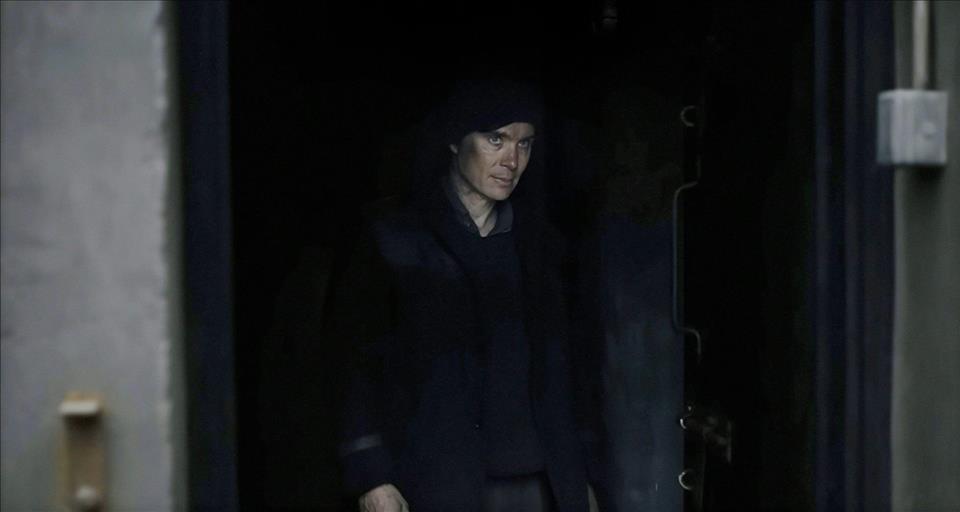
Small Things Like These: Magdalene Laundries Drama Is A Powerful Rumination On Compassion And Its Limits
“It struck me,” he said ,“that for generations Ireland had created a particular portrait of itself as a good living God-fearing nation. Through this and other reports we know this flattering self-portrait to be fictitious ... by any standards it was a cruel, pitiless Ireland distinctly lacking in a quality of mercy.”
His words might well serve as a prologue to the new film adaptation of Claire Keegan's 2020 novella, Small Things Like These. So too might a brief moment in the equally excoriating, if less nuanced film, The Magdalene Sisters (2002). In it, one of the young women begs a local delivery boy to help her escape, but in the end he lets her down.
History films work in various ways. One is to comfort the viewer that such a time is consigned to the past. Melodramas like The Magdalene Sisters and that other notable Magdalene story, Philomena (2013), find a form of closure when their victims confront their oppressors.
Another is to refuse a neat ending, to force us to imagine what might happen in the lives of the protagonists after the final credits have rolled. In Small Things Like These, that protagonist is coal-man, Bill Furlong (Cillian Murphy), who finds himself inexplicably troubled as he is finishing off his delivery business in the days before Christmas 1985.
All is well at home, where his five daughters quarrel amicably around the kitchen table as they do their homework under the eye of his wife, Eileen (Eileen Walsh). Money is tight but they're getting by.
Cillian Murphy and Zara Devin in Small Things Like These. FlixPix/Alamy Stock Photo
Making a delivery to the local convent, he comes across a young woman, Sarah (Zara Devlin), locked in the coal shed. The discovery sets off his own memories of being brought up by a single mother, and, after her death, by a wealthy landowner, Mrs Wilson (Michelle Fairley). The film confronts kindly Bill with a dilemma: to shut his eyes, as do the other inhabitants of New Ross, to what is going on in the convent, or to aid the young woman.
The mother superior, Sister Mary (Emily Watson), knows that the stooped coal-man standing uneasily in her office is no match for her. As she warns him, the future education of his younger daughters in the school adjacent to the convent is not guaranteed. Other of the villagers, who sense his confusion, tell him not to involve himself. His wife, even as she doesn't fully understand what is going through his head, is horrified by the merest suggestion that he will disrupt the status quo.
The price of compassionIn a less nuanced film, this advice might prompt the viewer to further empathise with Bill, egging him on to action. But here, the suffocating moral blanket that lies over the city – visually rendered as a thick fog that merges into a drizzle and occasional snow, and the narrow, constricting streets through which he moves – remind us that nonconformity comes with a heavy price.
The community may pile into the church for Christmas mass but, as Eileen admonishes Bill, there is no point in helping the starving child he meets on the road with the spare coins from his pocket – his father will only drink the money. What small closure comes at the film's end is fragile and contingent.
The trailer for Small Things Like These.
Another risk of telling stories from history is to sacrifice the particular for the universal. Small Things Like These manages, through its visuals and its achingly believable performances (Murphy's most of all) to be a film rooted in the Ireland that Kenny evoked in his speech. At the same time, it prompts us to question the limits of compassion – how much easier is it to conform to social norms than step outside them.
The film ends fittingly with a tribute to the more than 56,000 young women who were sent to Magdalene institutions for“penance and rehabilitation” between the years 1922 and 1996. And the children who were taken from them.
It is not history's job to impose lessons on the present. But at the same time, it would be inadequate for viewers not to ask what we would have done in Bill's place. And, more uncomfortably, what, faced with the knowledge of the multiple injustices of our own society, we ourselves are doing now.
Looking for something good? Cut through the noise with a carefully curated selection of the latest releases, live events and exhibitions, straight to your inbox every fortnight, on Fridays. Sign up here .

Legal Disclaimer:
MENAFN provides the
information “as is” without warranty of any kind. We do not accept
any responsibility or liability for the accuracy, content, images,
videos, licenses, completeness, legality, or reliability of the information
contained in this article. If you have any complaints or copyright
issues related to this article, kindly contact the provider above.


















Comments
No comment